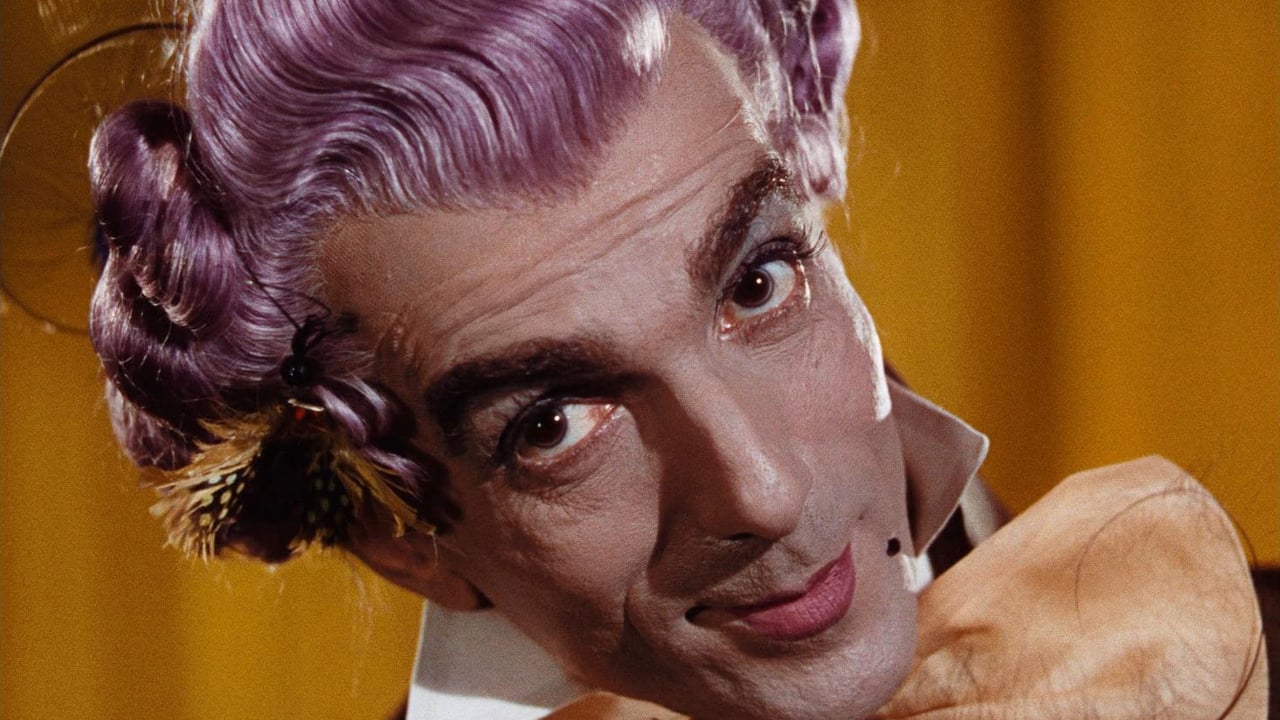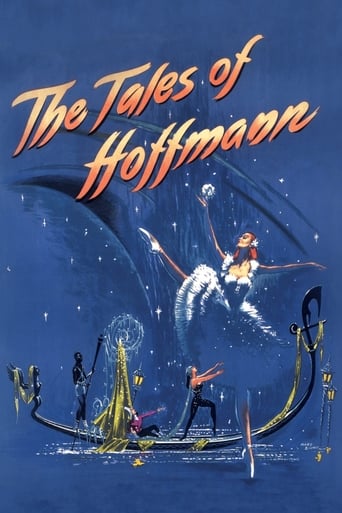

Most undeservingly overhyped movie of all time??
... View MoreHighly Overrated But Still Good
... View MoreGreat example of an old-fashioned, pure-at-heart escapist event movie that doesn't pretend to be anything that it's not and has boat loads of fun being its own ludicrous self.
... View MoreThe best films of this genre always show a path and provide a takeaway for being a better person.
... View MoreI love the films of Powell and Pressburger beyond all reason and at least three of Powell's films would make it into my all time top 10 favourite movies. Tales of Hoffmann is one of the few of Powell's films I hadn't previously seen so I got the DVD and sat down to watch expecting to be blown away as usual. However, my eager anticipation turned to boredom very quickly. It's hard to admit it but I just didn't like this film.The main problem for me is the music. I just hated most of it. Every now and then there's the odd fragment of a tune that was OK but for the most part it just sounded like hideous caterwauling. I've tried over the years to get into opera but in the end I realized I just don't like it and there's no point in pretending otherwise. I never want to hear this music again. The fact that the actors were syncing their lips to singers who had pre-recorded the sound didn't help either.But it isn't just the music. The whole thing is very stagey anyway and despite the expected gorgeous use of Technicolor and some beautiful set pieces it just drags. Imagine watching two hours of MTV during which time you enjoy just 2 or 3 videos and the rest is stuff you hate both musically and visually. (Actually MTV is always like that).I did like the ballet sequences and I especially liked the sections featuring Moira Shearer.So I still love Powell's films beyond all reason but I have to be honest and say this one I hated.
... View MoreA film of Offenbach's opera, choreographed by Frederick Ashton, designed by Hein Heckroth, and played by the Royal Philharmonic under Sir Thomas Beecham. Dear God, almost every second of it is overwhelmingly lovely. It may, in fact, be one of the most beautiful things wrought by man.The only drawback is that I am now completely smitten by Ludmilla Tcherina, one of the most beautiful works of God, and would sell my reflection to get hold of the 'missing' Powell and Pressburger films she also stars in, 'Oh... Rosalinda!' and 'Honeymoon.'If you loved 'The Red Shoes', you have to see this.
... View MoreI actually love "Tales" more for its music than this visual version, which is, still, stunning and most effective . . . altho it is more ballet than anything else."Actually, there have been suggestions that the "Antonia" episode be moved from last to first episode sequentially in the opera..."One of the endless "discussions' musical historians have . . . it appears that that was the way Offenback originally intended it to be, altho he revised the work so many times, who knows? The Antonia segment works much better as opera, with the devastatingly beautiful finale . . . " If I am correct, the "Antonia" episode was completed by another composer..."Not true . . . " ... Offenbach having died before completing Tales of Hoffmann."Not really true . . . he just never considered it finished, the way many composers and authors view their works. " Ahhh...that hauntingly beautiful "Barcarolle"....nothing can compare to it!! "Yes there can , , , the Barcarolle was lifted, musically intact, from a much earlier (and less successful) Offenbach work . . . Doesn't render it any less beautiful.A great, great opera . . . and a fun way to introduce novices to the art.RHB
... View MoreCertainly THE TALES OF HOFFMANN is not a film for everyone. It's done as pure opera with singing throughout and performed as a ballet with lavish set designs and breathtaking use of Technicolor. It won Oscar nominations for Set Decoration and Color and is produced in the tasteful style of all Powell and Pressburger films.But the drawback is that only the tale of Olympia, the mechanical doll, and the ill-fated love affair with the young Hoffmann (played in all three segments by tenor Robert Rounseville) is up to the top standards the film strives to achieve. The other tales of Hoffmann's follies are less interesting, not as easy to understand and not as entertaining or melodious as the Olympia segment.The final tale of Antonia suffers from the high notes forced upon screeching soprano (Anne Ayars) and the demands of the score which is clearly more tedious than melodious at this point.Robert Helpmann as the villain in all three tales is excellent and Robert Rounseville as Hoffmann is the only cast member who does his own singing in a strong tenor voice. You may remember him as Mr. Snow in Rodgers and Hammerstein's "Carousel" with Gordon MacRae and Shirley Jones.But there's no denying the magic of all the visual images on screen which includes the use of puppets and a good mixture of cinema and stage techniques. Opera lovers will find fault with some of the singers but it's hard to see any fault in the dancing which looked magnificent to me.None of the stories are as involving as "The Red Shoes" and this is one of the weaknesses of the film. The first story is far better than the rest of the tales which makes for an uneven blend of storytelling.A brilliant use of color and classical music makes it a "must see" for most film buffs.
... View More